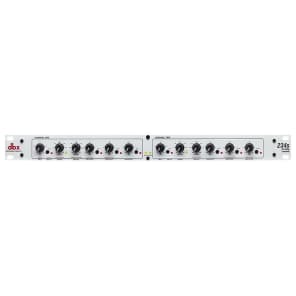
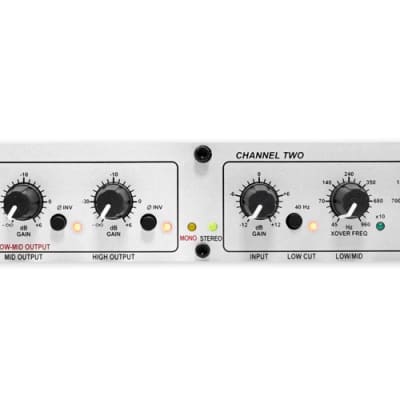
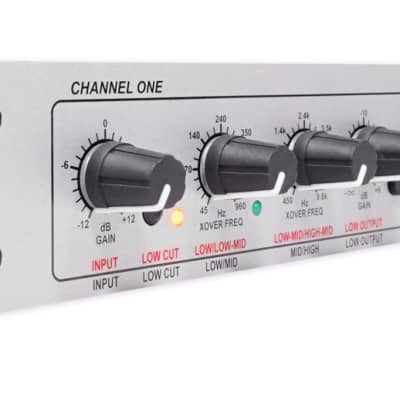
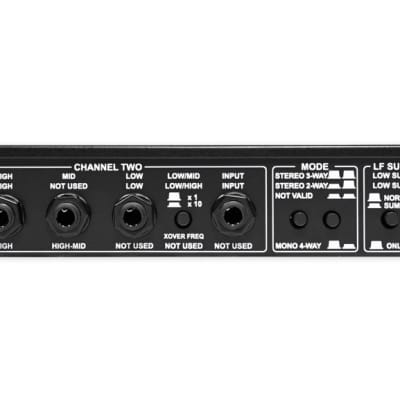
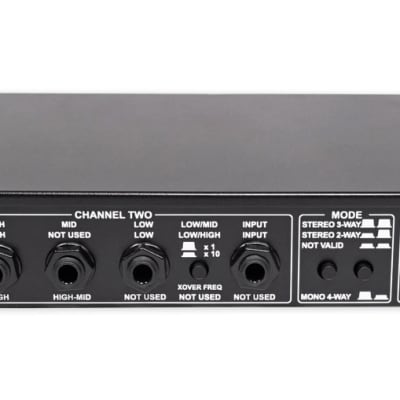
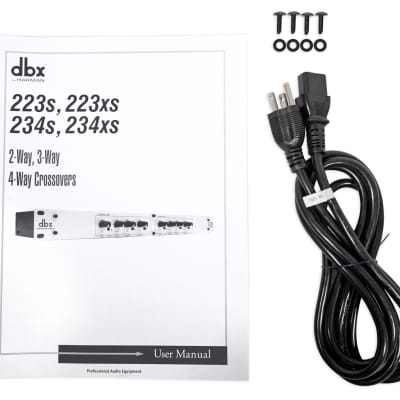
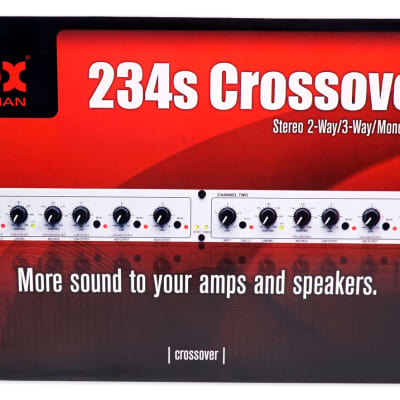
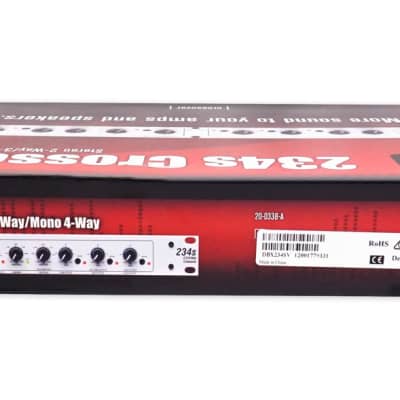
Authorized dbx Dealer!
Description:
More sound to your amps and speakers
The secret to making speakers sound great lies with the crossover you use. With
the dbx 234s Crossover you'll get great performance, ultra low-noise, rugged
reliability and four decades of dbx knowledge and expertise in building the
world's finest processors. The 234s uses precision filters to separate the audio
signal and direct the correct frequencies to your loudspeaker drivers. By
directing only the specific frequency bands to each speaker driver the 234s
leaves your amplifiers free to use their full power on the usable signal
eliminating distortion and giving your PA system a cleaner and better sound.
The dbx 234s is a dual channel crossover with all the features you would expect
from a professional product. It features Linkwitz-Riley 24dB per octave filters,
independent output gain controls for level matching, output phase inversion, 40
Hz low cut filter, and optional mono summing of the low frequency (subwoofer)
output. Everything in the design exudes great precision from the solid "click"
controls to the high quality 1/4" TRS inputs and outputs.
Features:
- dbx 234S Stereo 2/3 Way/Mono 4-Way Professional Crossover, Rack Mount, 2 Channel
- TRS Differentially Balanced Ins and Outs
- Mode Switches for Mono 4-Way or Stereo 2-Way/3-Way Operation
- Low Frequency Summed (Subwoofer) Output
- 10 Range Switch on Both Channels
- 40Hz High Pass (Low Cut) Filter Both Channels
- Phase Reverse Switch On All Outputs
- Individual Level Controls On All Outputs
- 24dB Per Octave Linkwitz-Riley Filters (The Professional Standard)
- Stereo/Mono Status LEDs Indicate the Selected Mode
- dbx® 2 Year Parts and Labor As Standard
- CSA NRTL/C Approved
- CE Compliant
Specifications:
- Input Connectors: 1/4" TRS
- Input Type: Electronically balanced/unbalanced, RF filtered
- Input Impedance: Balanced >50k Ohm, Unbalanced > 25k Ohm
- Max Input: >22 dBu balanced or unbalanced
- CMRR: >40dB, typically >55dB @ 1 kHz
- Output Connectors: 1/4" TRS
- Output Type: Impedance-balanced/unbalanced, RF filtered
- Output Impedance: Balanced 200 Ohm, unbalanced 100 Ohm
- Max Output: >21 dBu balanced/unbalanced into 2k ohms or greater
- Bandwidth: 20 Hz to 20 kHz, +/-0.5dB
- Frequency Response: < 3 Hz to > 90 kHz, +0/-3 dB
- Signal-to-Noise Ratio: Ref: +4 dBu, 22 kHz measurement bandwidth
- Signal-to-Noise (Stereo Mode): >94dB (Low Output), >93dB (Mid Output), >90dB (High Output)
- Signal-to-Noise (Mono Mode): >94dB (Low Output, Low/Mid Output); >92dB (High/Mid Output); >88dB (High Output)
- Dynamic Range: >106 dB, un-weighted, any output
- THD: < 0.004% at +4 dBu, 1 kHz; < 0.04% at 20 dBu, 1 kHz
- Inter-Channel Crosstalk: < -80 dB, 20 Hz to 20 kHz
- Crossover Frequencies (Stereo Mode): Low/Mid: 45 to 960 Hz or 450 Hz to 9.6 kHz
- Crossover Frequencies (Mono Mode): Low/Low-Mid: 45 to 960 Hz or 450 Hz to 9.6 kHz
- Crossover Filter Type: Linkwitz-Riley, 24 dB/octave, state-variable
- Controls: Low Cut Switch, Phase Invert Switch, Mode Switch, x1 / x10 Switch, LF Sum Switch
-
Indicators:
- Green: Stereo Operation
- Yellow: Mono Operation
- Red- Per Channel: Low Cut Filter
- Green- Per Channel: x10
- Red- Per Output: Phase Invert
- Operating Voltage: 100-120 VAC 50/60 Hz
- Operating Temperature: 32°F to 113°F
- Power Consumption: 15W
- Power Connector: IEC Receptacle
- Product Dimensions (H x W x D): 1.75" x 19" x 6.9" inches
- Product Weight: 4.0 Lbs.
for the Owner's Manual
| Listed | 3 years ago |
| Condition | Mint (Used) Mint items are in essentially new original condition but have been opened or played.Learn more |
| Brand | |
| Model |
|
| Categories |

